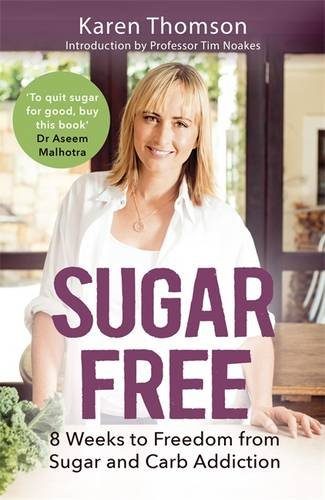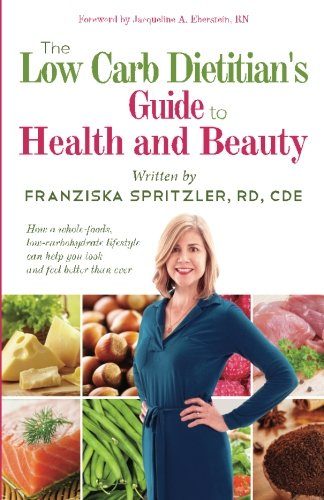Listen to Podcast Episode 6 on Apple Podcasts • Google Podcasts • Overcast • Spotify • Castbox • Stitcher

In today’s interview I get to speak with LCHF nutritionist, Emily Maguire, about common problems and answers for women on a low carb or keto diet.
Emily has a BSc (hons) degree in nutrition with her MSc in obesity science and management. Her masters research focused on – “The Effects of a Low Carbohydrate Diet in the Management of Type 2 Diabetes”.
She eats a low carb diet herself, so she understands the common challenges females who eat a lower carb intake might go through.
Emily gives lectures internationally on the LCHF diet topic, provides one to one nutritional coaching for clients, plus she has co-authored/contributed to two keto diet books “Sugar Free: 8 Weeks to Freedom from Sugar and Carb Addiction” and “Ketogenic Diet and Metabolic Therapies“.
I discuss with Emily how women can start a successful low carb diet & the reasons why some struggle ladies might not lose weight or even gain weight on a keto diet.
Buy Emily Maguire’s Recommended Low Carb (Keto) Diet Books on Amazon
Sugar Free: 8 Weeks to Freedom from Sugar and Carb Addiction


The Low Carb Dietitian’s Guide to Health and Beauty: How a Whole-Foods, Low-Carbohydrate Lifestyle Can Help You Look and Feel Better Than Ever


Special thanks to Emily for joining me on the show. Enjoy the episode!
Show Notes with Timestamps
Highlights of what we talk about during the interview:
Click on one of the timestamp links in the brackets to jump to that point in the interview audio.
[00:32] – Emilys’ biography.
[01:26] – Is a nutritionist the same as a dietitian? Both do a 4 year degree, but a nutritionist is trained to do work more in public health and preventative care whereas dietetics focuses more on treatment of disorders.
[02:26] – Why Emily is one of my LCHF diet experts since the 1st LCHF convention and her teaming up with Karen Thompson on the successful carb addiction & sugar free diet book.
[03:09] – Differences in amount of carbs per day between a sugar free diet, low carb diet and ketogenic diet. How beginners to LCHF eating might think it is just an Atkins diet. The importance of using low carb as a foundation to work out carbohydrate tolerance in each person’s diet.
[05:30] – Should everyone be a on a keto diet? No & the common problem of people trying to cut out all carbs when starting a keto way of eating.
[06:04] – The unspoken psychological issue of triggering past eating disorders in ladies who go low carb or keto. How restricting carbs in some women can highlight previous anorexia or bulimia thoughts.
[06:53] – How going low carb or keto should be seen as a lifestyle change. For a lot of people going keto is not sustainable for life, but a low carb way of eating is.
[07:49] – How even though ketones are satiating and can reduce hunger physiologically, some women struggle mentally with the restricting of certain foods.
[08:41] – A keto diet is not only about lowering carbs in the diet, also need to look at the other macros (protein/fat) intake & the nutritional value of actual food eaten. Going keto is not as easy as saying eat as much as you want as you won’t put on weight.
[10:23] – How to measure amount of daily carbohydrates in a person’s diet? Examples of amount of carbs in food are: one slice of bread is 20-50g, handful of berries is 5g, two cups of non-starchy vegetables is 5g, 250ml of milk is 10g.
[11:12] – Carbs aren’t just in breads and pasta. Also in fruits, vegetables, dairy and nuts. Berries like, strawberries, are good low carb fruit choice.
[12:12] – Beginners should use online food trackers like MyFitnessPal to learn how many carbs in different types of food. However, ladies mustn’t be obsessive about the tracker data.
[15:08] – Insulin sensitive vs insulin resistance people. How each person’s glycemic response to eating carbs determines if they can eat tubers like sweet potato or white potato.
[17:16] – Can people eat too much rice on a low carb diet? Yes, if you have insulin resistance or type 2 diabetes then you’l need to restrict having rice.
[18:05] – Apple shaped figure might mean you are more predisposed to insulin resistance.(Listen to Dr Ben Bikman explain what is insulin resistance and the best diet for it.)
[18:57] – Differences between men and women who go low carb. Reasons why some females gain weight, feel moody, cold and not great when eating a low carb or keto diet. The importance of hormone levels in ladies, like low thyroid levels, for understanding bad reactions to going keto in women.
[21:10] – Benefit of going low carb to improve fertility in women. Reducing carbs in the diet can help some women improve hormone balance and reduce Polycystic Ovary Syndrome (PCOS) symptoms. Story from Jacqueline Eberstein and the Dr Atkins study causing women who struggled to fall pregnant to unexpectedly conceive a child.
[23:01] – How female sex hormones like estrogen and progesterone are linked to a ladies fat mass levels. Women who are underweight or loss weight too fast on a keto diet can alter their menstrual cycle. Highlighting how a strict low carb high fat diet can be a problem for these types of women.
[24:21] – Why women crave carbs more than men on a LCHF diet.
[26:46] – Low carb diets can improve gynaecological function. How a woman’s past fear of fat and only eating a low fat diet has affected their hormones. The importance of monitoring the & amount of calories for women on a LCHF diet.
[28:55] – Is any weight gain on the diet just water weight or extra fat gain? The common problem of ladies eating too many calories on a keto diet. Not allowed to eat as much butter or cream as you want.
[32:00] – The mistake of thinking high ketone levels means better weight loss on a keto diet. (Link to Emily’s blog post and Dr Brianna Stubbs) For women struggling to loss weight on a keto diet; increasing fat intake might not be the answer to fix that problem.
[33:16] – Obesity research studies show a low carb diet beats a low fat diet for helping obese and overweight people loss weight. Reasons being ketones help in a variety of ways including suppressing appetite by suppressing the hunger hormone ghrelin (study).
[34:56] – Exogenous ketones, like keto salts and ketone esters, look promising for therapeutic treatment in cases like neurological disorders and cancer treatment. However, on a keto diet for weight loss or general health the goal is not to get ketone blood levels as high as possible.
[38:06] – Women do not need to stay in nutritional ketosis all the time. Depending on their health goals, just being low carb and not in nutritional ketosis with ketones above 0.5 mmol could be good for long-term health. No one knows what effects long-term cyclical ketosis might have on someone’s health in the future.
[39:36] – Intermittent nutritional ketosis works well with female endurance athletes. Emily’s client story who is an ultra-marathon runner eating a successful low carb eating plan for sport performance. The importance of carb timing in long-distance runners.
[44:09] – Common problem of women eating too little protein on a low carb or keto diet. Older females who are pre or post-menopausal age are dealing with sarcopenia and need to take care of their lean muscle mass with enough protein in their diet.
[47:06] – The difference in eating a keto diet for teenage girls, women in their 20’s, 30’s, 40’s or post-menopause. The problem of using a keto calculator to determine what is moderate protein intake. How nitrogen balance is needed at 0.8 g/kg of body weight to not lose essential muscle mass. The importance of protein for also maintaining healthy bones and avoiding osteopenia/osteoporosis. (Listen to Dr Shawn Baker about the carnivore diet)
[49:24] – Classic ketogenic diet macro ratio would be 4:1 which means for every 5 grams of food eaten that 4 grams needs to be fat and the other 1 gram being protein & carbohydrate. This is a 80-90% ketogenic diet that could be used in the therapeutic treatment of epilepsy. Most people will not be eating such a high fat diet. Why women worry too much about eating too much protein, because of gluconeogenesis breaking their nutritional ketosis. (Listen to Prof Stuart Phillips on why we need more protein on a keto diet)
[51:46] – Emily’s favourite sources of fat women should eat on a low carb diet. Examples include dairy fat (if tolerable) like butter, ghee & cheese. Also nuts & seeds, avocados, coconut oil & olive oil. Recommended to get a mix of different types of fats in the diet.
[53:08] – Three foods women need to watch out they are not eating too much off on the diet. Women on a keto diet might eat too much dark chocolate, nuts & dairy products.
[54:56] – The importance of drinking enough water. The problem when starting a keto diet of losing lots of stored glycogen along with fluid in the body and needing to replace that by drinking adequate water in a day. Dehydration and electrolyte imbalance can make the initial “keto flu” feel worse.
[57:46] – Summary of important points and recommendations on how a woman can start eating a low carb diet coming from a standard diet. Emily recommends a good diet book for women by low carb dietitian, Franziska Spritzler. How best to contact Emily if you have a diet question for her. How women mustn’t give up on a low carb diet as it does work as long as any underlying issues are resolved.
Thanks for Listening!
Now it’s time to share your thoughts.
You can:
- Share this episode on Twitter, Facebook, or Pinterest.
- Leave an honest review on iTunes. Your star ratings & reviews really help, plus I will read each one.